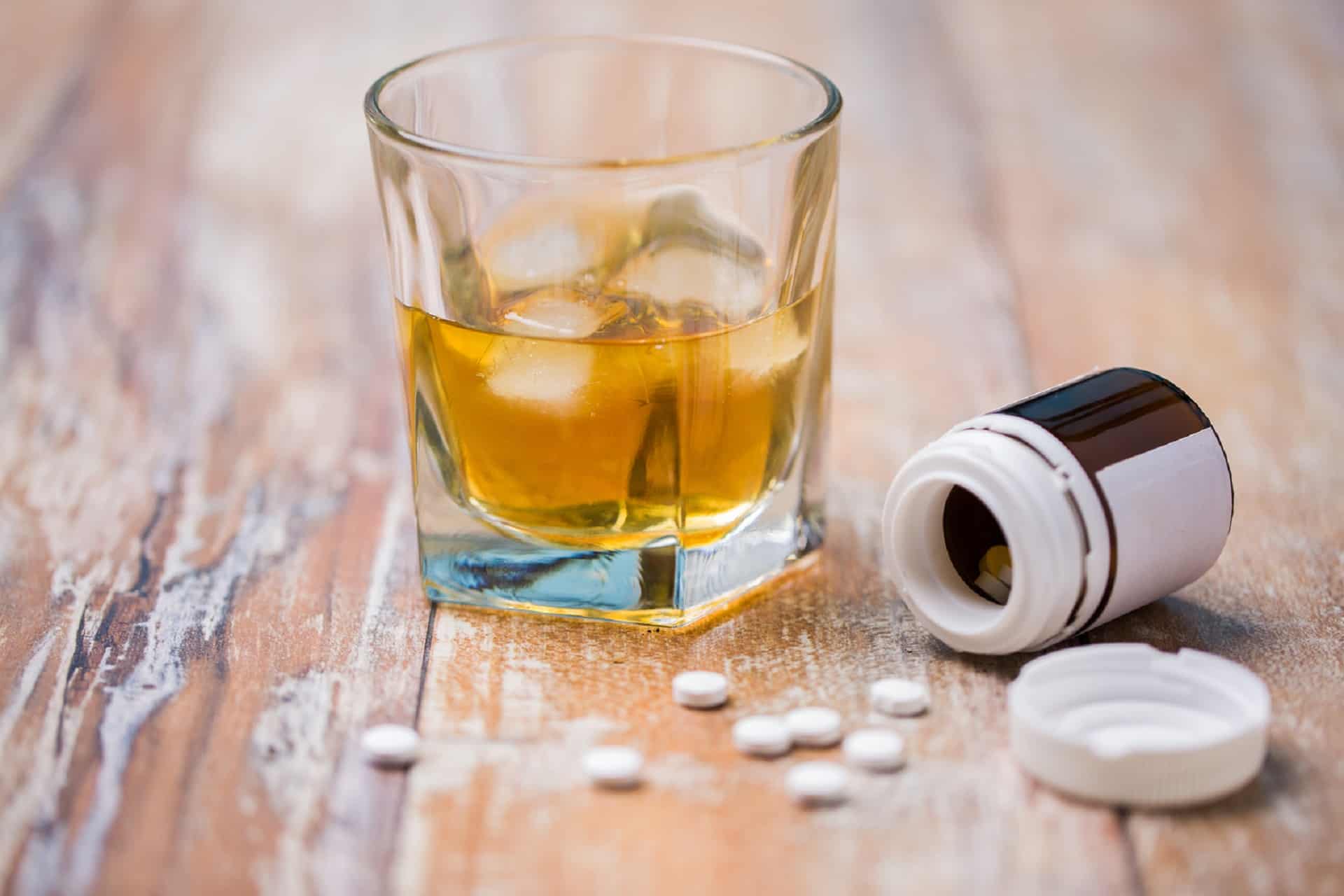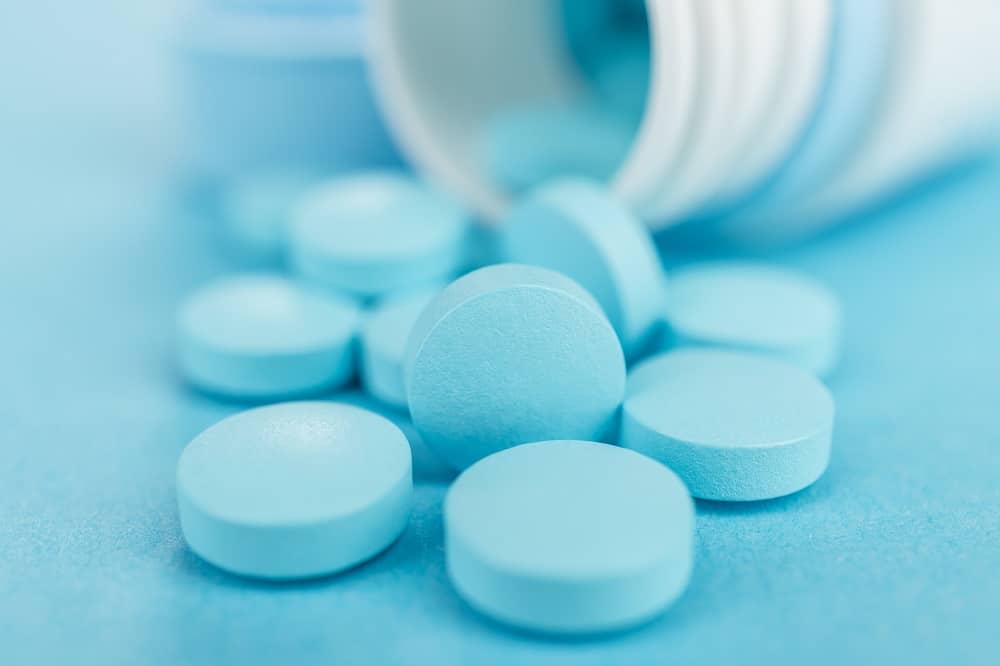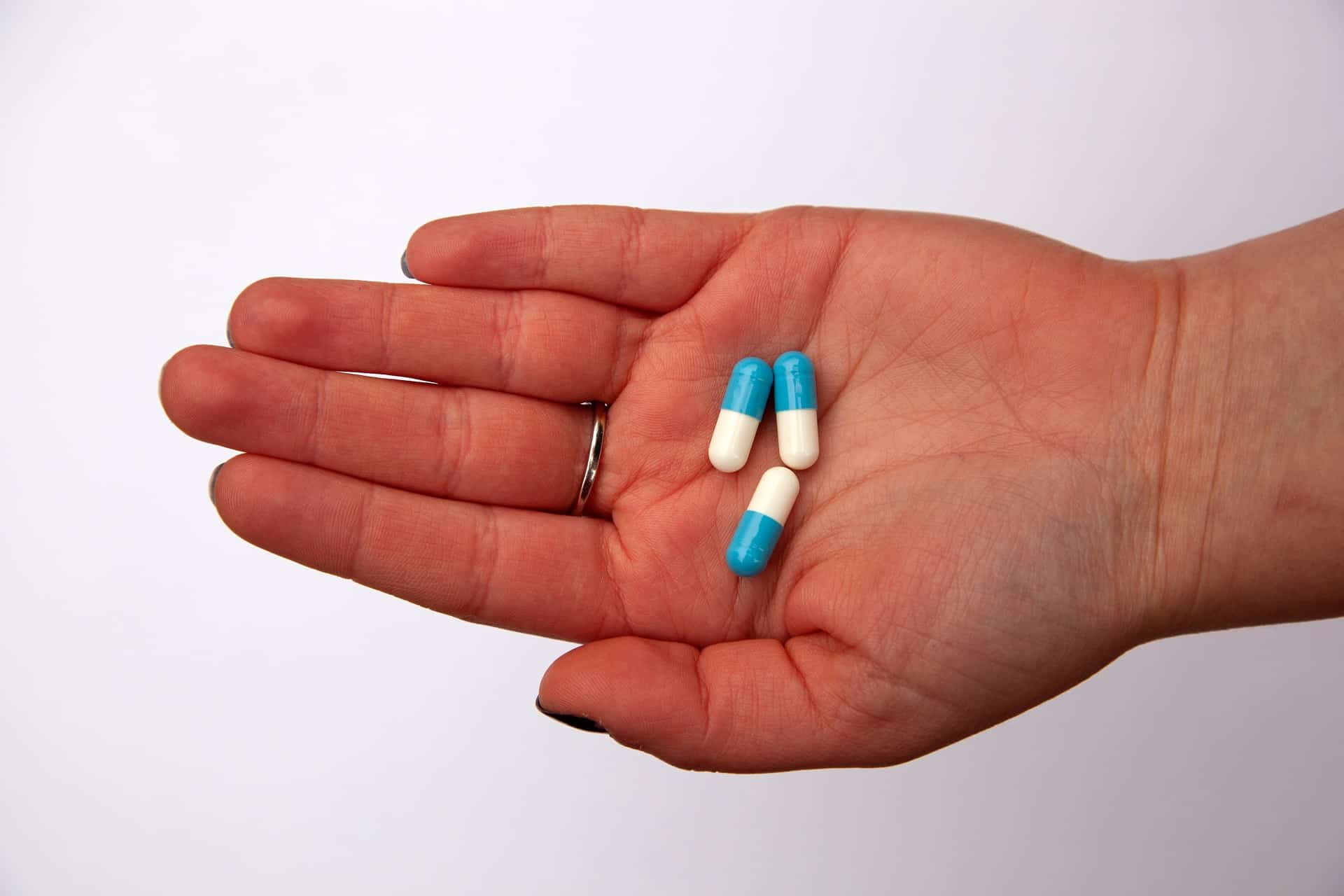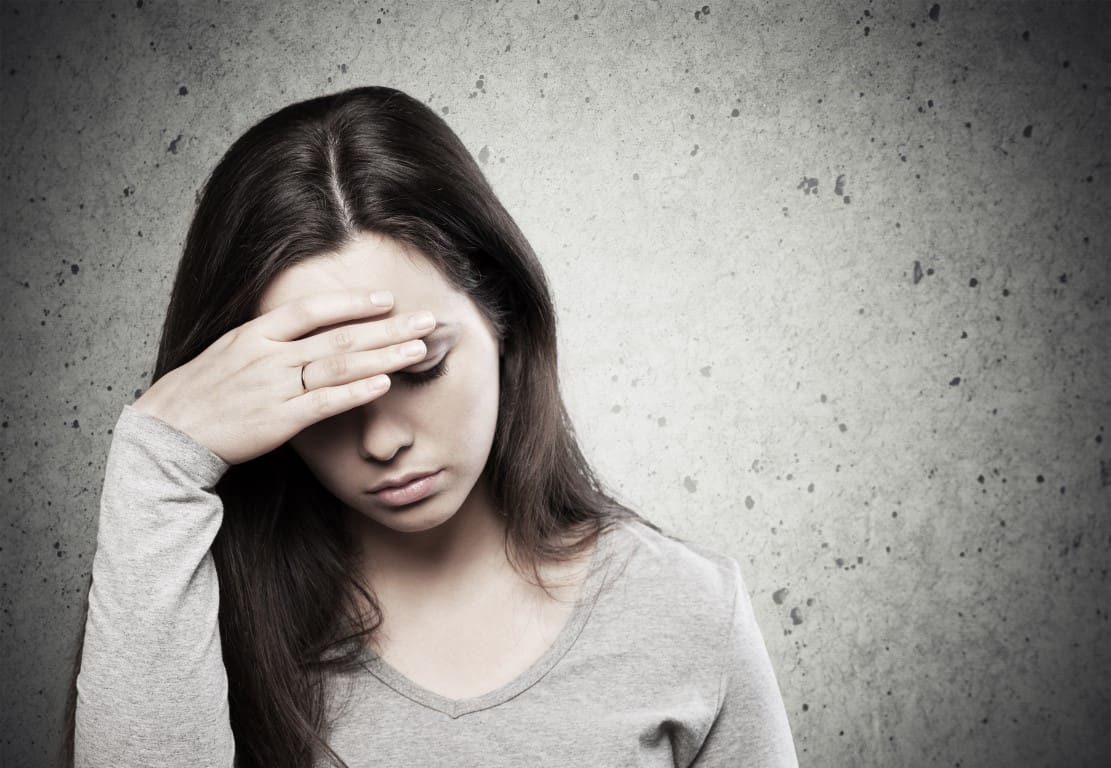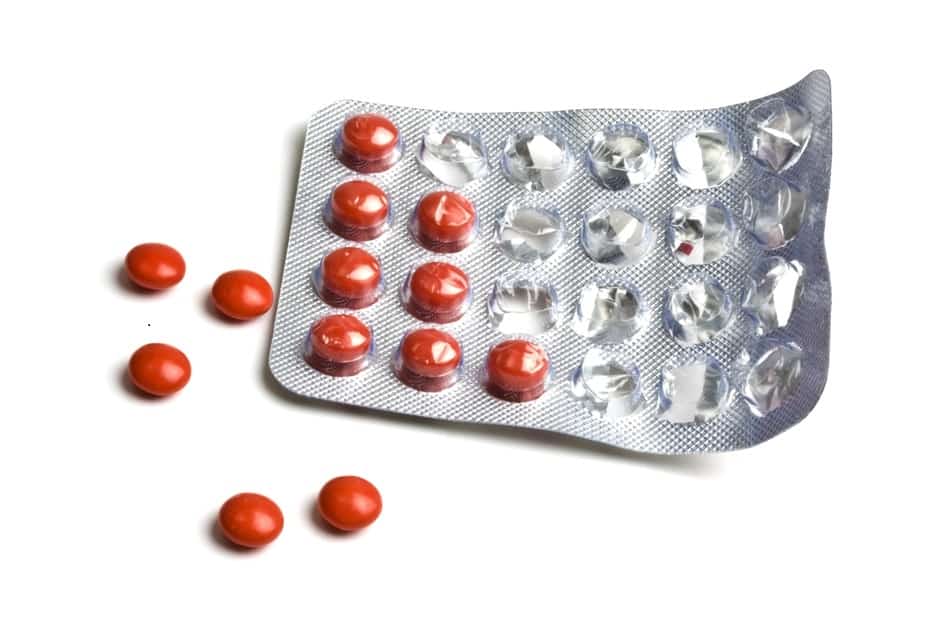Could your drinking be interfering with your prescription medications, and, if so, could you be putting yourself in serious danger of a severe physical reaction between alcohol and your meds? The answer could well be a resounding “Yes” – all depending, of course, on what the medication is exactly.Just one prescription opioid painkiller, for example, one simple tablet, followed by a beer, could depress your respiratory function by half – all because of their rapid interaction in your body.
“Abusing alcohol & medication can be a sign of a deeper issue. We accept many insurance plans, take a look.”
And did you know that certain popular brands of sleeping pills are, in fact, benzodiazepines? Benzos and alcohol could well mean an urgent, speed limit-defying visit to the hospital’s ER. Don’t be too concerned, though – the paramedic usually drives the ambulance.According to a 2015 study by the National Institutes of Health (NIH), 42% of U.S. adults – more than 4 out of 10 – take medications that can interact with alcohol. For example, diabetics who drink alcohol are at risk of nerve damage, eye disease, and disturbances in their fat metabolism, as alcohol interacts negatively with both insulin and diabetic medications.Additionally, the study reports that the percentage rises steeply for senior citizens (anyone aged over 65), as 78% of those who consume alcohol are also using prescription medications that can interact with their drinking.
“Combining alcohol with medications often carries the potential for serious health risks.” – Dr. George Koob, Director, National Institute on Alcohol Abuse and Alcoholism (NIAAA)
Carelessly or improperly mixing alcohol with certain medications being taken at the same time can have significant physical effects on your health, and these effects can range from relatively minor ones, such as headaches, nausea, and dizziness, to possibly life-threatening situations, such as respiratory difficulties, internal bleeding, and permanent organ damage.The implications of this NIH study greatly affects the average U.S. citizen – children included, as underage drinking studies reveal. Consider these statistics:
- Over 86% of U.S. adults will drink alcohol at some point in their lives
- Nearly 70% of these adults use at least one prescription drug
- Over half are prescribed two or more medications
- About 20% take 5 or more prescriptions
- Prescription use is increasing; between 2007 and 2010, the number of people who took at least one prescription medication within the past 30 days increased by 50%, and
- 1 in 4 emergency room (ER) visits is due to alcohol-drug interactions
“We accept many health insurance plans. You can get your life back in order with our outpatient program for alcohol treatment today!“
Alcohol-Related Deaths Continue to Rise
Over the last 20 years, alcohol-related deaths in the U.S. have doubled. Yes, doubled. According to an in-depth study of death certificates entitled “Using Death Certificates to Explore Changes in Alcohol‐Related Mortality in the United States, 1999 to 2017,” between 1999 and 2017, alcohol-related deaths rose from nearly 36,000 a year to almost 73,000, meaning around 1 million people – 944,880, to be exact – lost their lives to the legal “demon drink.”In 2017, nearly one-fifth of these deaths (17.9%; 12,954 people) were overdoses of either solely alcohol or a combination of alcohol with other drugs, including prescription medications. Overall, 2.6% of around 2.8 million deaths in the U.S. involved the use of alcohol. Here are the other important facts garnered by the report:
- The largest annual increase of alcohol‐related deaths occurred among non‐Hispanic (NH) white females
- At least 1 in 5 of all deaths involved excessive alcohol consumption
- Nearly half of all deaths resulted from liver disease (30.7%; 22,245)
- Deaths were highest among males, people in the age group 45-74 years, and among NH American Indians or Alaska Natives
- Death rates increased for all age groups except 16-20 and 75+, and for the majority of racial and ethnic groups
- Rates of death increased more for people aged 55 to 64, and
- Rates of chronic alcohol‐related deaths (the majority of all alcohol‐related deaths) increased more for younger adults, aged 25 to 34
As the study authors wrote, “Women are at greater risk than men at comparable levels of alcohol exposure for alcohol-related cardiovascular diseases, certain cancers, alcohol-related liver disease, and acute liver failure due to excessive drinking.”The study’s final report, written before coronavirus has swept across the U.S. also has some telling words for what is being experienced now, as more and more people are turning to alcohol and other addictive substances, eg. opioid painkiller prescriptions, in an attempt to self-medicate from the mental health effects of family bereavement, positive COVID-19 tests in the family, recent lockdowns, social distancing, employment concerns, like job losses or being furloughed, business foreclosures, university and school closures, and so on.Here’s what the report stated about the 20-year doubling of alcohol-related deaths; remember, this is pre-coronavirus, but his words are highly appropriate to what is happening now across the nation, as 40 U.S. states are now seeing alarming spikes in fatal drug and alcohol overdoses:
“Those deaths are associated with despair – loss of hope, loss of employment and opportunities for employment, increase in stress – leading to substance abuse and alcohol abuse.” – Lead researcher Dr. Aaron M. White, PhD. U.S. NIAAA neuroscientist and researcher
In a post-study interview with national news media, Dr. White stated that it was not known exactly why alcohol-fueled deaths are rising so significantly – “I wish I had a good answer,” he said, “but I just don’t.”
Raising Awareness of the Dangers of Mixing Alcohol & Medical Prescriptions
Nothing has more of an impact on people’s opinions and views now than the world of social media coupled with the news media. It appears that every few months a story breaks across the board – from Facebook to the New York Times – reporting the shocking death from an overdose of a U.S. celebrity.As sad as this may be, it’s still no different, no sadder, to the overdose of a close neighbor, or a well-known member of the local community, or a poor homeless woman trying to raise her family without a roof over their heads on the outskirts of the city where you live. However, the fatal overdose of a celebrity does do one thing – it raises awareness and even changes perceptions among the people who loved their music, their films, their sporting achievements or whatever other accomplishments they may have had.Let’s look at a few stories of U.S. celebrities whose lives ended prematurely because of mixing alcohol with their prescription medicines, either accidentally or willfully.
Bobbi Kristina Brown
Morphine (Opioid), Cocaine, Alcohol & Prescription Drugs
- Bobbi Kristina Brown, the only child of world-famous U.S. singer and Grammy Award-winning Whitney Houston and R&B singer Bobby Brown, died on July 26, 2015, aged just 22, as the result of a combination of drug intoxication and her immersion in water, according to her post-mortem report.
- Brown was initially found face-down and unresponsive in a Georgia bathtub in January 2015, but she actually died 6 months later in the hospice that cared for her, having never come out of the coma that the drugs, alcohol, and water combined to put her in.
- However, medical examiner’s office investigators were not able to determine exactly how Brown died. An autopsy revealed that she had a combination of morphine, cocaine, alcohol and prescription drugs in her body. The medical examiner was unable to determine if she killed herself, if someone else killed her, or if her death was accidental.
- Brown’s mother, Whitney Houston, was also found submerged in a bathtub in Beverly Hills, CA., on February 11, 2012. On autopsy, it was found that she suffered “a cardiac event complicated by the cocaine use.” As she was still alive when she slipped under the water, her death was deemed accidental drowning. Bobbi Kristina Brown was buried in August 2015, at the Fairview Cemetery in Westfield, New Jersey, next to the grave of her mother.
Natalie Wood
Alcohol, Painkillers & Motion-Sickness Medication
- On November 29, 1981, the body of famous U.S. film star Natalie Wood, who had appeared in cinema classics Miracle on 34th Street, Rebel Without a Cause, and West Side Story, was found floating off California’s Catalina Island in the Pacific Ocean, dressed just in a down jacket, a flannel nightgown, and woolen socks.
- Wood had spent the Thanksgiving weekend aboard her yacht, “Splendour,” with her husband, Hollywood actor Robert Wagner, another famous film actor, Christopher Walken, and the yacht’s captain, Dennis Davern.
- On November 30, L.A. County’s chief medical examiner, Thomas Noguchi, deemed her death to be accidental drowning and other undetermined factors. The bruises on Wood’s body, and the scratch marks on the yacht’s dinghy were seen as evidence of her attempts to climb back on board before she was overcome with exhaustion.
- However, the autopsy also found that Wood’s blood alcohol content was 0.14%, and there were traces of a painkiller and a motion-sickness pill in her bloodstream, both of which would have increased the effects of the alcohol she had consumed.
Keith Moon
Alcohol & Heminevrin (Prescription Acute Alcohol Withdrawal Drug)
- Keith Moon, drummer with the world famous rock band The Who, died on Sept 7, 1978, of an accidental overdose of heminevrin (known as either clomethiazole or chlormethiazole in the U.S.), which is prescribed to combat the acute withdrawal effects of alcoholism.
- In fact, heminevrin acts as a strong sedative, hypnotic, muscle relaxant and anticonvulsant, having the same pharmachemical mechanism of action as traditional barbiturates. It is particularly dangerous to patients with an elevated risk for drug abuse, such as those with a personal or familial history of addiction.
- Moon’s post-mortem confirmed 32 tablets in his system – 26 of which were undissolved. He had been witnessed drinking heavily at a recent birthday party, in which he drunkenly backed his car through a fence, and into a Holiday Inn swimming pool.
Clearly, consuming alcohol while taking prescription drugs, either innocently or abusively, is a dangerous practice, one that could well be your last. Let us take a more detailed look at 2?? prescription medications you should never mix with alcohol.
1. Alcohol & Opioid Pain Medications: A Deadly Combination
“Mixing alcohol and other sedatives, like sleeping pills or narcotic pain medications, can cause sleepiness, problems with coordination, and potentially suppress brain stem areas tasked with controlling vital reflexes like breathing, heart rate, and gagging to clear the airway.” – Dr. Aaron White, NIAAAAs we are still in the grip of a national opioid epidemic here in the U.S., highlighting the serious dangers of the misuse of opioid prescriptions would be a little like shutting the barn-door with the horse already gone, but it is highly important that this article addresses the potentially deadly combination of such opioid medications with alcohol.The reason for this is quite simple. Both prescription opioid pain medications and alcohol are highly effective central nervous system (CNS) depressants, which means that each substance will dramatically (and dangerously) magnify the effects of the other. The Bobbi Kristina Brown story above highlights how, when you put these substances together (deliberately or otherwise), you could easily lose consciousness.Furthermore, all prescription pain medications depress respiration to varying degrees. In fact, one of the signs of an opioid overdose is breathing that has become either extremely shallow or has stopped altogether.
Alcohol / Opioid Study Highlights the Risk of Respiratory Depression
A recent study into the effects of mixing opioids and alcohol, published in the February 2017 issue of Anesthesiology, an American Society of Anesthesiologists medical journal, has found that combining alcohol and opioids may even be more dangerous than was previously thought.Researchers at the Leiden University Medical Center’s Anesthesia and Pain Research Unit in the Netherlands report that drinking even a modest amount of alcohol after taking just one dose of an opioid painkiller, eg. Oxycontin, will increase the risk of respiratory depression.Two groups of test subjects, one aged 21-28, and the other aged 66-77, were given the equivalent of 1 x 20 mg oxycodone tablet and 5 alcoholic drinks; the results showed:
- The oxycodone tablet depressed breathing by 28%
- The alcohol depressed breathing by an additional 19%, and
- Together, the two substances cause respiratory depression to reach 47%
Although both test groups experienced these effects, they were more marked in the elderly group. The study’s lead author, Dr. Albert Dahan, M.D., Ph.D., a Professor of Anesthesiology, stated, “Respiratory depression is a potentially fatal complication of opioid use. We found alcohol exacerbated the already harmful respiratory effects of opioids.”The Centers for Disease Control and Prevention (CDC) reported that alcohol is involved in 18.5% of opioid pain medication emergency room visits, and 22.1% of opioid pain medication deaths.
Common Opioid Pain Medications:
- Hydrocodone (Vicodin, Norco, Lortab, Lorcet, Hysingla ER, Zohydro ER)
- Oxycodone (OxyContin, Roxicodone, Percocet, Endocet, Roxicet, Targiniq ER)
- Oxymorphone (Opana, Opana ER, Numorphan, Numorphan HCl)
- Hydromorphone (Dilaudid)
- Methadone (Methadose, Dolophine)
- Fentanyl (Fentora, Duragesic, Actiq)
- Morphine (Kadia, Avinza, MS Contin)
- Buprenorphine (Subutex, Suboxone)
- Codeine
2. Alcohol & Muscle Relaxants
Just like prescription opioid medications, muscle relaxants are usually prescribed in response to pain. However, unlike opioids, not all muscle relaxants will depress the CNS. These relaxants have two possible mechanisms of action, depending on whether they are neuromuscular blockers or spasmolytics.Neuromuscular blockers, as their name suggests, interfere with the transmission of signals within the muscles, and do not affect the CNS. However, skeletal muscle relaxants (also known as spasmolytics) target other areas – not the muscles, but the spinal cord and the brainstem (the cortex), so they do actively depress the CNS.Muscle relaxants are very powerful medications that can cause sedation, drowsiness, confusion, and a loss of alertness. As with opioids, drinking alcohol magnifies these effects to a dangerous degree, and can even prove fatal. At a minimum, drinking alcohol while taking muscle relaxants will cause drowsiness, dizziness, and impairments in a person’s judgment, thinking, and level of concentration.
Common Skeletal Muscle Relaxants (Spasmolytics)
- Baclofen (Lioresal, Baclosan)
- Carisoprodol (Soma, Carisoma, Sodol)
- Chlorzoxazone (Parafon Forte, Remular)
- Cyclobenzaprine (Flexeril)
- Dantrolene (Dantrium)
- Metaxalone (Skelaxin)
- Methocarbamol (Marbaxin, Robaxin)
- Orphenadrine (Flexon, Norgesic, Norflex)
- Tizanidine (Zanaflex)
“Get the help you need today. We offer outpatient assistance, so you can maintain your work, family, and life commitments while getting the help you deserve!”
3. Alcohol & Sleeping Pills: ER Visit May Be Required
Prescription medications that promote a better quality sleep, known more commonly as “sleeping pills,” are sedatives that can help people who suffer disorders that impact on sleeping, eg. insomnia and anxiety. Because insomnia is a highly personalized condition, not every sleep aid is beneficial to every sufferer.Sleep medications can be extremely habit-forming with strong potential for abuse and are predominantly prescribed on a short-term basis. The extended use of sleeping pills is inadvisable, as it can cause prolonged impairment, ie. drowsiness. For example, individuals taking an extended-release formulation of Ambien can still show impairment 8 hours after taking a single dose – 33% of women and 25% of men, respectively.Because of the way that sleep medications interact with certain brain receptors, people with a personal history of alcohol abuse are at increased risk of addiction / physical dependence. Like muscle relaxants and opioids, sleep aids are also CNS depressants, and, when combined with alcohol, can lead to:
- Extreme sedation
- Depressed respiration
- Overdose
- Coma, and even
- Death
Warning: Benzodiazepine Sleeping Pills
Certain sleeping medications, eg. Restoril, are benzodiazepines and will depress respiratory function more than the non-benzodiazepine type. In addition to the effects of non-benzodiazepines, benzo sleep aids can cause memory impairment, the appearance of “drunkenness”, and numbing of emotions, among other symptoms. The interaction between benzodiazepines and alcohol is particularly strong; the CDC reports that over 27% of benzodiazepine-related emergency room visits also involve alcohol.
Common Sleep Medications:
- Benzodiazepines:
- Quazepam (Doral, Dormalin)
- Temazepam (Restoril)
- Triazolam (Halcion)
- Estazolam (ProSom, Eurodin)
- Lorazepam (Ativan)
- Diazepam (Valium)
- Flurazepam (Dalmane, Dalmadorm)
- Atypical Benzodiazepines:
- Zolpidem (Ambien, Intermezzo)
- Eszopiclone (Lunesta)
- Zaleplon (Sonata)
- Melatonin Agonists:
- Ramelteon (Rozerem)
- Antidepressants:
- Doxepin (Silenor)
- Amitriptyline (Elavil, Endep, Vanatrip)
- Trazodone (Oleptro)
4. Alcohol & Antidepressants: Defeating the Purpose
People who suffer from a depressive disorder need to be especially careful with any use of alcohol. In fact, approximately one-third of individuals with major depression also meet the criteria for alcohol use disorder (AUD). When these two conditions co-occur, each invariably worsens the other disorder.There is a fine line between achieving any benefits from antidepressant medications when combined with the consumption of alcohol. It is pretty much common knowledge that alcohol is a depressant, and drinking alcohol actively acts against the positive effects of the medication taken.In fact, those who drink while taking antidepressants run the considerable risk of achieving the completely opposite effect, and so actually increasing their feelings of depression and hopelessness. Although it is true that most SSRI-class antidepressants, such as Paxil, do not react with alcohol, that is not the case for all types of depression medication.For example, drinking alcohol while taking a tricyclic antidepressant (TCA), such as Tofranil, can result in increased drowsiness, and impaired cognition and motor control. Taking monoamine-oxidase inhibitors (MAOI) medications, like Nardil or Marplan, with alcohol, particularly beer or red wine, can result in a dangerous spike in blood pressure. Additionally, using alcohol with atypical antidepressants, such as Remeron, can cause excessive sleepiness and coordination problems.
Common Antidepressant Medications:
- Atypical Antidepressants:
- Mirtazapine (Remeron)
- Selective Serotonin Reuptake Inhibitors (SSRI):
- Citalopram (Celexa)
- Sertraline (Zoloft)
- Fluoxetine (Prozac)
- Paroxetine (Paxil)
- Escitalopram (Lexapro)
- Serotonin-norepinephrine Reuptake Inhibitor (SNRI):
- Venlafaxine (Effexor)
- Duloxetine (Cymbalta)
- Tricyclic Antidepressants:
- Imipramine (Tofranil)
- Monoamine-oxidase Inhibitors (MAOI):
- Isocarboxazid (Marplan)
- Phenelzine (Nardil)
- Tranylcypromine (Parnate)
- Miscellaneous Antidepressants:
- Bupropion (Wellbutrin)
5. Alcohol & Anti Anxiety Drugs: Doubling the Depressant Effect
Just as with a depressive disorder, medical research has highlighted a direct link between anxiety sufferers and the misuse of alcohol – in fact, about 1 in 5 people with anxiety will also abuse alcohol, as a way to self-medicate themselves from anxiety’s effect on their everyday life. To complicate matters even further, approximately 85% of people with depression will also suffer from the most common form of anxiety – generalized anxiety disorder (GAD).Benzodiazepine-class drugs, such as Xanax or Klonopin, are the most frequently prescribed anxiolytic medications to treat the symptoms of anxiety. Because both alcohol and benzodiazepines are both CNS depressants, their effects are magnified greatly if used simultaneously. The alcohol is metabolized first, with the benzodiazepines staying in the body longer.The varying side effects of combining benzodiazepine medication with alcohol can include:
- Increased intoxication
- Cognitive impairment
- Loss of judgment
- Disinhibition
- Impulsiveness
- Aggression/Hostility
- Reduction in physical response time
- Poor motor coordination
- Inability to perform complex actions
- Blackouts
- Heart attack
- Stroke
- Suicidal ideation
- Seizures
- Organ damage
- Overdose, and
- Death due to respiratory depression
If that isn’t concerning enough, and if one or both of these substances are abused for an extended period, serious psychological disorders can worsen or develop anew, such as psychosis, PTSD, clinical depression, and cross-addiction.It does not mean to say that non-benzodiazepine medications, eg. antihistamines, such as Atarax, are safe in any way – alcohol should still be avoided. While drugs like Atarax do not present the same risk of dependence or addiction as benzo drugs, they are still a hypnotic sedative and CNS depressant. Mixing alcohol and non-benzodiazepine medications, such as Atarax, can cause dizziness, severe sedation, and confusion.
Common Anti Anxiety Medications:
- Benzodiazepines:
- Alprazolam (Xanax)
- Lorazepam (Ativan)
- Clonazepam (Rivotril, Klonopin)
- Diazepam (Valium)
- Oxazepam (Serepax, Serax)
- Bromazepam (Lexotan, Lectopam)
- Chlordiazepoxide (Librium)
- Clorazepate (Tranxene)
- Benzodiazepines:
- Antihistamines:
- Hydroxyzine (Atarax)
6. Alcohol & Antipsychotic Medications: Dangerous Self-Medication
Antipsychotic medications are basically strong tranquilizers, typically prescribed for the management of psychotic disorders, such as schizophrenia or bipolar disorder. Unfortunately, the rate of alcohol use and abuse among schizophrenics is much higher compared to the general population, making a dangerous physical interaction highly likely. In fact, according to the NIH, 33% of schizophrenics meet the lifetime criteria for AUD.Similarly, the rate of alcohol dependence among people struggling with bipolar disorder is over 31%, whereas, in the general population, only around 6% met the criteria for AUD. These figures are primarily the result of these groups of mental health sufferers attempting to self-medicate.The primary danger of self-medicating with alcohol to ease the symptoms of a psychotic disorder is that alcohol abuse will actually worsen the psychiatric condition, and so reduce the positive effects of the prescribed medication.Individual antipsychotics interact with alcohol in several ways. For example, drinking while taking an antipsychotic such as Abilify, Risperdal, or Seroquel can result in extremely low blood pressure and dizziness, while, at the same time, magnifying the CNS-depressing effects of the alcohol.
Common Antipsychotic Medications:
- Atypical Antipsychotics:
- Aripiprazole (Abilify)
- Quetiapine (Seroquel)
- Asenapine (Saphris)
- Clozapine (Clozaril)
- Risperidone (Risperdal)
- Ziprasidone (Geodon)
- Brexpiprazole (Rexulti)
- Iloperidone (Fanapt)
- Cariprazine (Vraylar)
- Lurasidone (Latuda)
- Paliperidone (Invega)
- Olanzapine (Zyprexa)
- Antimanic Agents:
- Lithobid (Lithium)
- Valproic acid (Depakene)
- Triazine Anticonvulsants:
- Lamotrigine (Lamictal)
- Fatty Acid Derivative Anticonvulsants:
- Divalproex Sodium (Depakote)
- Dibenzazepine Anticonvulsants:
- Carbamazepine (Equetro, Tegretol)
7. Alcohol & Hypertension Medications: Increasing the Pressure
“Alcohol can increase blood pressure, which could be counterproductive if one is taking medications. Mixing diuretic medications with alcohol, which is also a diuretic, could contribute to dehydration.” – Dr. Aaron White, NIAAA
If a person is taking prescription hypertension medications, the last thing they should be doing is consuming something that exacerbates the condition; drinking alcohol is a major factor in high blood pressure. Not only does having 3 or more drinks in one session temporarily raise your blood pressure, regularly heavy or binge drinking can lead to long-term increases.There are a number of different types of blood pressure medications, and drinking has a different interaction with each. For example, taking diuretic medications like Lasix or Diuril while drinking alcohol increases the diuretic effect, and it is easy to become dehydrated.The interaction of alcohol and hypertension meds which are ACE inhibitors, such as Lisinopril or Vasotec, particularly if someone is new to antihypertensive medication, can result in a drastic drop in blood pressure, causing dizziness and fainting.It’s a similar reaction when alcohol is consumed while taking beta blocker-type blood pressure medications. Alcohol is a depressant, and beta blockers, such as Tenormin or Sectral, also slow the heart rate, resulting in extreme dizziness, lethargy, and an increased risk of fainting.Other hypertension medications include individual calcium channel blockers (CCBs), and these interact with alcohol in different ways. For example, the effect that drinking has on Norvasc is negligible, while doing the same with Verapamil will increase the concentration of alcohol in the blood, thereby enhancing drinking’s effects.
Common Hypertension Medications:
- Loop Diuretic (Water Pill):
- Furosemide (Lasix)
- Potassium-sparing Diuretic (Water Pill):
- Spironolactone (Aldactone)
- Amiloride (Midamor)
- Penbutolol:
- Penbutolol (Levatol): Used alone or together with a diuretic or “water pill”
- Thiazide Diuretics (Water Pill):
- Chlorthalidone (Hygroton)
- Chlorothiazide (Diuril)
- Hydrochlorothiazide (Esidrix, HydroDIURIL, Microzide)
- Indapamide (Lozol)
- Metolazone (Mykrox, Zaroxolyn)
- ACE (Angiotensin Converting Enzyme) Inhibitor:
- Captopril (Capoten)
- Lisinopril (Prinivil, Zestril)
- Enalapril (Vasotec)
- Benazepril (Lotensin)
- Calcium Channel Blockers (CCB):
- Verapamil (Verelan, Calan)
- Amlodipine (Norvasc)
- Diltiazem (Tiazac, Dilacor, Cardizem)
- Nicardipine (Cardene)
- Nifedipine (Procardia)
- Amlodipine/benazepril (Lotrel)
- Amlodipine/valsartan (Exforge)
- Amlodipine/atorvastatin (Caduet)
- Cardioselective Beta Blockers:
- Acebutolol (Sectral)
- Atenolol (Tenormin)
- Betaxolol (Kerlone)
- Bisoprolol (Zebeta, Ziac)
- Metoprolol (Lopressor, Toprol)
- Non-Cardioselective Beta Blockers:
- Carteolol (Cartrol)
- Carvedilol (Coreg)
- Labetalol (Normodyne, Trandate)
- Nadolol (Corgard)
- Propranolol (Inderal, Inderal LA)
- Timolol (Blocadren)
- Angiotensin-II Antagonists /Antihypertensive agents:
- Azilsartan (Edarbi)
- Losartan (Cozaar)
- Angiotensin Receptor Blockers:
- Candesartan (Atacand)
- Eprosartan (Teveten)
- Irbesartan (Avapro)
- Olmesartan (Benicar)
- Valsartan (Diovan)
- Telmisartan (Micardis)
8. Alcohol & Diabetes Medications: Acidosis (Increased Acid in the Bloodstream)
“Alcohol increases insulin levels and lowers blood glucose, so combining alcohol with antidiabetic agents that regulate glucose levels could cause an undesirable drop in blood sugar. And, over time, alcohol can contribute to insulin insensitivity.” – Dr. Aaron White, NIAAAFor someone with diabetes, drinking alcohol always presents a risk. Moderate drinking causes blood sugar levels to rise, but heavy drinking can cause it to drop dangerously low – especially for individuals with Type I Diabetes. Diabetics who take Diabinese and drink alcohol can experience a harsh Disulfiram-like reaction, including the following symptoms:
- Severe headache
- Copious vomiting
- Excessive sweating
- Chest pains
- Heart palpitations
- Hyperventilation
- Dizziness
- Blurred vision
- Confusion
- Respiratory depression
- Cardiac arrhythmia
- Myocardial infarction
- Convulsions
- Unconsciousness / Coma, and
- Death
Consuming large quantities of alcohol over an extended period will lower blood sugar. If you’re diabetic, taking insulin or an oral medication, such as Victoza, then your level of blood sugar will sink even lower. By doing this, you run the risk of diabetic ketoacidosis (DKA) – a potentially fatal condition. Common symptoms of DKA can include:
- Decreased alertness
- Deep, rapid breathing
- Dehydration
- Dry skin and mouth
- Flushed face
- Frequent urination or long-lasting thirst (for a day or more)
- Fruity-smelling breath
- Headache
- Muscle stiffness or aches
- Nausea and vomiting
- Stomach pain
Taking metformin medication after you have been drinking can result in lactic acidosis – a serious medical condition characterized by an excessive buildup of lactic acid in the blood. Common symptoms of lactic acidosis include:
- Nausea
- Vomiting
- Muscle weakness
- Hyperventilation, and
- Death – the mortality rate for lactic acidosis due to an alcohol/metformin interaction is approximately 25%
Common Diabetes Medications:
- All insulin (injection) formulations (Novolin, Novolin N, Novolog, Humulin, Humulin N, Humalog, FlexPen, Apidra, Tresiba, Levemir, Lantus, Toujeo, Ryzodeg)
- Amylin Analogs:
- Pramlintide (Symlinpen 60, Symlinpen 120)
- Alpha-Glucosidase Inhibitors:
- Miglitol (Glyset)
- Acarbose (Precose)
- Biguanides:
- Metformin (Glucophage, Metformin Hydrochloride ER, Glumetza, Riomet, Fortamet, Kazano, Invokamet, Xigduo XR, Synjardy, Glucovance, Jentadueto, Actoplus, PrandiMet, Avandamet, Kombiglyze XR, Janumet)
- Dopamine Receptor Agonists:
- Bromocriptine (Parlodel)
- Dipeptidyl Peptidase 4 Inhibitors:
- Alogliptin (Nesina, Kazano, Oseni)
- Linagliptin (Tradjenta, Glyxambi, Jentadueto)
- Saxagliptin (Onglyza, Kombiglyze XR, Januvia, Janumet, Janumet XR, Juvisync)
- Incretin Mimetics:
- Albiglutide (Tanzen)
- Dulaglutide (Trulicity)
- Exenatide (Byetta)
- Exenatide – extended-release (Bydureon)
- Liraglutide (Victoza)
- Meglitinides:
- Nateglinide (Starlix)
- Repaglinide (Prandin)
- SGLT-2 Inhibitors:
- Dapagliflozin (Farxiga)
- Canagliflozin (Invokana)
- Empagliflozin (Jardiance)
- Sulfonylureas:
- Glimepiride (Amaryl, Duetact, Avandaryl)
- Glipizide (Glucotrol)
- Glipizide-metformin (Metaglip)
- Glyburide (Glynase, DiaBeta, Micronase)
- Chlorpropamide (Diabinese)
- Tolazamide (Tolinase)
- Tolbutamide (Tol-Tab)
- Thiazolidinediones:
- Rosiglitazone (Avandia)
- Rosiglitazone-metformin (Amaryl M)
- Pioglitazone (Actos)
9. Alcohol & Cholesterol Medications
Although some research studies suggest that drinking alcohol increases a person’s “good cholesterol” levels, such information is not a license to drink without consideration, especially when taking any of the medications prescribed for high cholesterol. For every “positive” health benefit provided by alcohol, at least one “negative” will balance any outcome.Statin drugs, such as Lipitor, Crestor, or Zocor, and heavy drinking can both damage the liver. Obviously, when done simultaneously, the damage can be more serious. Consuming alcohol and cholesterol medications involves your liver in an additional physical reaction. Your liver will break down and process the alcohol first – before the medication. This means that the medication stays in your body longer, and its side effects are multiplied; these can include:
- Muscle pain and cramps
- Fatigue
- Diarrhea
- Lowered immunity
- Dizziness
- Irregular or accelerated heartbeat
- Joint pain
- Frequent urination
- Dark, pink, or cloudy urine
Please be aware that dark, pink, or cloudy urine could be a symptom of rhabdomyolysis, a breakdown of the body’s skeletal muscle tissue. This breakdown causes excess protein in your blood, and too much of this protein can seriously damage your kidneys – to the point of renal failure and a need for dialysis.
Common Cholesterol Medications:
- Statins:
- Atorvastatin (Lipitor)
- Lovastatin (Mevacor, Altoprev)
- Pravastatin (Pravachol)
- Rosuvastatin (Crestor)
- Simvastatin (Zocor)
- Statins-Antilipemic Agent:
- Simvastatin and Ezetimibe (Vytorin)
- Statin-CCBs:
- Atorvastatin and Amlodipine (Caduet)
- Statins-Vitamins:
- Lovastatin and Niacin (Advicor)
- Antilipemic Agent:
- Ezetimibe (Zetia)
- Cholestyramine Resin (Questran, Questran Light, Prevalite, Locholest, Locholest Light)
- Bile Acid Sequestrants:
- Colestipol (Colestid)
- Colesevelam Hcl (WelChol)
- Fibric Acids:
- Gemfibrozil (Lopid)
- Fenofibrate (Antara, Lofibra, Tricor, Triglide)
- Clofibrate (Atromid-S)
Alcohol & Prescription Medications: The Bottom Line
Prescription medications are given for specific conditions or illnesses in your body. Alcohol will change how those medications act on your body and react with your body, just as those medications change how your body responds to alcohol. The results of these changes can be uncomfortable, serious, and potentially deadly. Here’s what you should do – always.
- When you are prescribed medication, the first step is to have a frank and open talk with your doctor (and with your pharmacist) about your alcohol use. You must strictly adhere to any advice you are given concerning alcohol consumption while using your medication.
- You must always read the instructions for any medication you are taking. Sometimes, you may need to make lifestyle changes when taking certain medications. It is in your best interest to do this.
- Lastly, you must be aware of any adverse reactions that you may be experiencing. If you experience or suffer any serious side effects, please contact your doctor immediately.
Important: As the database of prescribed medications is constantly changing, the lists we have provided above are by no means comprehensive, though they do continue to be updated periodically. Undoubtedly, the best resource available to you for questions about drinking alcohol with your prescription medications is your own family physician.References & Sources:
- https://www.nih.gov/news-events/news-releases/nih-study-reveals-many-americans-risk-alcohol-medication-interactions
- https://www.cbsnews.com/news/study-shows-70-percent-of-americans-take-prescription-drugs/
- https://www.niaaa.nih.gov/alcohol-health/overview-alcohol-consumption/alcohol-facts-and-statistics
- https://www.sciencedaily.com/releases/2015/01/150117104312.htm
- https://www.sciencedaily.com/releases/2017/02/170207105306.htm
- https://paindr.com/wp-content/uploads/2012/05/FINAL_skeletal-muscle-relaxants_2011-11-06.pdf
- https://www.cdc.gov/mmwr/preview/mmwrhtml/mm6340a1.htm
- https://pubs.niaaa.nih.gov/publications/aa14.htm
- https://bjp.rcpsych.org/content/147/1/48.short
- https://pubs.niaaa.nih.gov/publications/arh26-2/99-102.pdf
- https://pubs.niaaa.nih.gov/publications/arh26-2/103-108.htm
- https://pubs.niaaa.nih.gov/publications/Medicine/medicine.htm
- https://pubs.niaaa.nih.gov/publications/arh22-3/211.pdf

